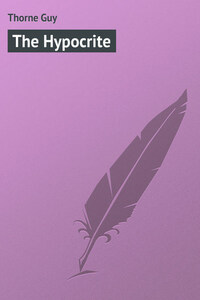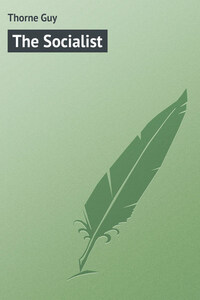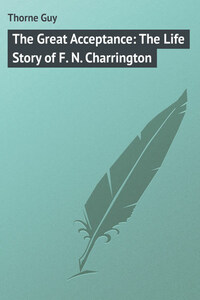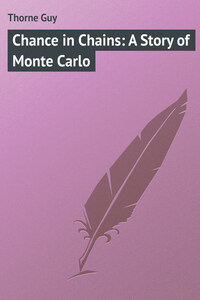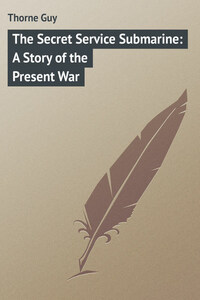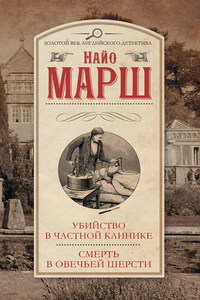CHAPTER I
YARDLY GOBION OPENS HIS LETTERS
"I am thinking of writing my impressions, binding them in red leather, with a fleur-de-lys stamped in the corner, and distributing them among my friends," said the youth with the large tie.
"My good fool," said the President of the Union, who sat by the fire, "you must remember that most of us know you are a humbug."
"Quite so, but I'm not going to do it for the journalistic set. Don't you know that, owing to my youthful appearance and earnest eyes, I have an admiring circle of people who worship me as their god – good, healthy, red people, who like moonlight in the quad, and read leading articles? It is very amusing. I wear a great mass of hair, and look at them with far-away eyes instinct with intellectual pain; and sometimes when we get very solemn, the tears rise slowly, and I talk in clear tones of effort, of will – the toil, the struggle, the Glorious Reward! They absolutely love me, and I live on them, borrow their allowances, drink their whiskey – in short, rook them largely all round."
"It is a good thing," said a Merton man, whom they called the Prophet, "that you have an ark of refuge, where there is no necessity to pose, and where you can freely behave like the scoundrel you are; soul-scraping with earnest freshmen is doubtless profitable, but I should say it was wearing."
"That's the worst of it. I have to disguise the fact that I know you people, and write for The Dead Bird; it is horribly difficult. I find, though, that when I am just a little drunk I do it much better. One can look more spirituel, and play the game better all round. Unfortunately the entrances and exits require management. When one is leaning back in a padded armchair, it is easy to appear sober; but coming into a big room full of men, and picking one's way through them to get to the aforesaid chair, is very perilous work."
"'Where there's a swill there's a sway,' I suppose," said the Prophet.
"Exactly," said the youth, with a yawn; "you are becoming singularly apt at a certain sort of machine-made epigram. I will have a short drink – quite short. Yes, please – Scotch – " He splashed some soda-water into his tumbler from a syphon on the table, drank it off at a gulp, and got up.
"I really must go now; I am to speak third at the Wadham debate, so I mustn't be late."
He got his hat – a soft felt one – and arranging his tie in the glass over the mantelpiece, went out with a smile. The rooms belonged to the President of the Union, who was living out of college. They were rooms arranged with an eye to effect; the owner posed in his furniture as well as in his person, though there was no particular evidence of luxury or straining after cheap æstheticism.
A few armchairs, a sideboard covered with bottles, and two large bookshelves full of paper-backed novels of Heller and Maupassant, with a few portly historical treatises of the Taswell-Langmead type, were the most prominent objects.
It was evident, however, that a central idea influenced the arrangement. Sturtevant wrote little decadent studies for any London paper that would take them. He had scattered notes from literary people about the mantelpiece. The table was covered with proof-slips, magazines, and empty glasses, while his latest piece of work, a thin book bound in brown paper, called The Harmonies of Sin, lay in a conspicuous place on the window-seat.
When Yardly Gobion, the youth who had been speaking, had gone, Sturtevant and the Prophet, whose real name was Condamine, drew up their chairs to the fire, lighting fresh cigarettes. They had been drinking all day, and were by this time in the stage that knows no reticence. It is the stage immediately preceding a pious fervour and resolve to start a new life.
Both of them were men of mark in the University.
Sturtevant had come up to Oxford with a brilliant scholarship from a public school which was growing in reputation every year, the Head-master being a high churchman who made a scientific study of advertising his own personality in the weekly press as an earnest ascetic, but who in reality was merely a Sybarite masquerading as a monk. Sturtevant was the show boy of Hailton, and soon made himself felt in his year at Oxford.
He spoke well and brilliantly at the Union and various college debating societies. He affected an utter disregard for morals, pretending so vigorously that Irish whiskey was entirely necessary to salvation that he soon came to believe in his own pose, and to find a day impossible without frequent "short drinks."
Though his eyesight was excellent he carried a single eyeglass, and on alternate days wore a hunting stock or a Liberty yellow silk tie.
The extraordinary thing about the man was that he was not merely a poseur; he really had remarkable cleverness, and despite his life he had done excellently well in the Schools and Union. In this his last term he was at the head of things literary, and of the "Modern" school at Oxford.
Condamine was a different type of man. He had done nothing very much but talk, but had a great influence with the cleverest set. He was tall, with a white, clean-shaven face, and an oracular way of holding forth which had earned him the name of Prophet. He lived as if life were a painful duty which he must perform, but very much against his inclination.
